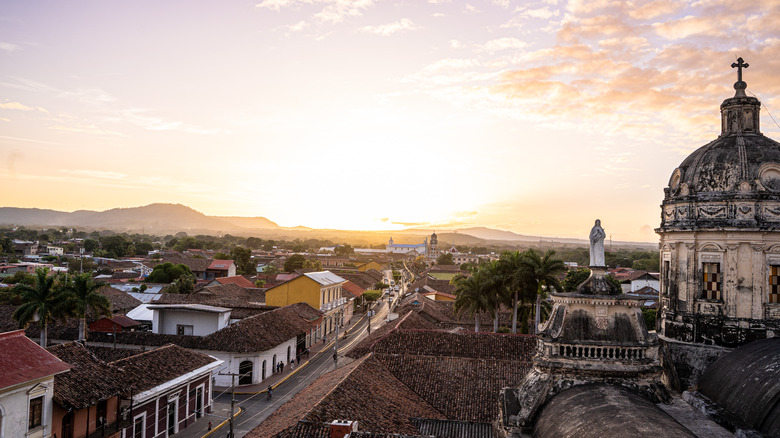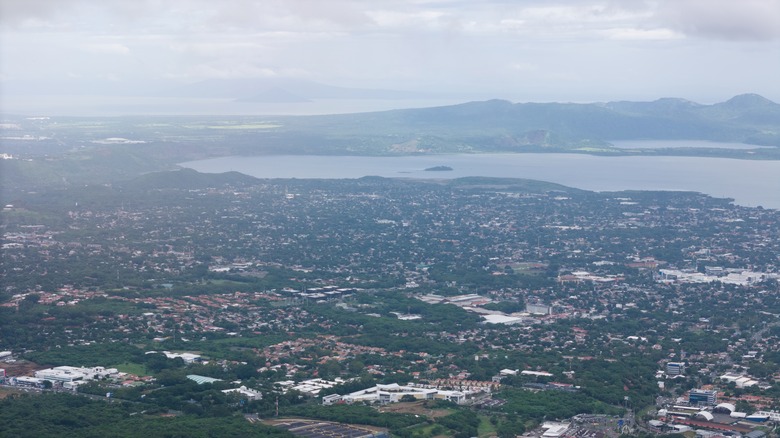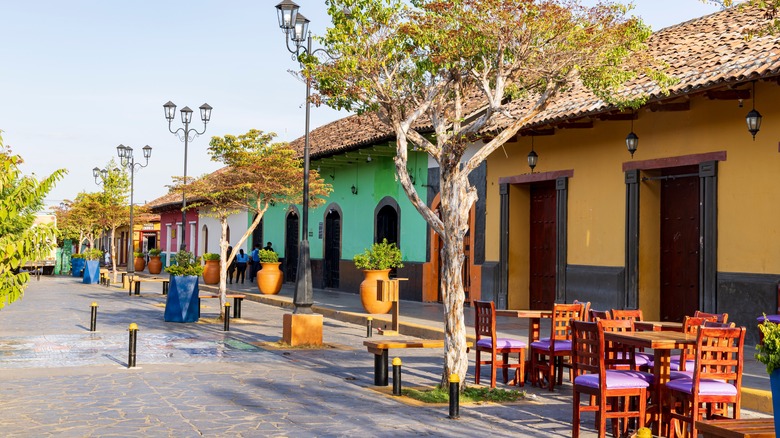Rick Steves' Special Connection To This Central American Country Goes Back Decades
While guidebook writer, TV host, and world traveler Rick Steves has made his living teaching us all about traveling in Europe (his TV show and travel blog are even called "Rick Steves' Europe"), believe it or not, his favorite country in the world isn't even in Europe, and when he travels for himself, he actually prefers Central America. While Steves stated on his website that it is "not the most enjoyable" place to visit, he has a profound connection to the nation of Nicaragua, which he has visited several times over the course of his life. He wrote: "I feel like an expert on Europe, but in Central America, I'm humbled by my lack of knowledge."
In separate posts on his website, Steves published some of his notes from his first few trips to Nicaragua in the 1980s and '90s. His motivation then was less focused on tourism and more centered on activism and self-education. At the time, it was uncommon for Americans to go there, as the U.S. had suspended all funding to the nation because it feared that the country was leaning towards communism. Steves' father had the same fears for his own, politically minded son, warning him not to be "duped" there. Years later, Steves shared: "[A]fter 30 years of satisfying my curiosity about our world and its challenges by traveling and talking to people, it's clear to me: The people most in danger of being duped are those who stay home."
Rick Steves explores Nicaragua to learn
While Rick Steves arrived in Nicaragua for the first time for political reasons, he has since visited as a traveler to experience a different side of the country. Steves believes that meeting new people is what makes someone a "good traveler," and that has informed how he explores Nicaragua. After a visit in 2005, Steves wrote on his website that he had hired local guides who drove him through little villages and major cities, teaching him about life there along the way.
He recommended the attractive Hotel Europeo just outside the capital city of Managua, with its restaurant, pool, and garden, before moving on to Granada. There, he enjoyed Nica Libres (a drink of rum and Coke) and home-cooked meals. In a separate post, Steves suggested visiting major cities like León in December, when the festival of La Purisima floods the streets with excited children seeking candy and trinkets. Still, the travel guru warned that a vacation in Nicaragua isn't always simple and easygoing. "Americans who come here in search of understanding (like me) want things in black-and-white clarity," he wrote. "In reality, it is much more complex. I didn't come home with the clean answers I sought, but I did return with a sense of optimism."
Under-the-radar Nicaragua is open for travelers
Rick Steves has always stressed the difference between tourists and travelers, saying that the latter seek a deeper connection to their destinations — like the one Steves himself found in Nicaragua. Although it's close to the impressive tropical forests and beachy islands of tourist hotspot Costa Rica, Nicaragua is not a place many American travelers think to visit. In an interview with guidebook writer Randall Wood for the podcast "Travel with Rick Steves" back in 2006, Wood explained that although the Central American country is not on the radar of most American travelers, it does have a tourist industry, along with breathtaking cloud forests, beautiful beaches, and numerous small towns to explore for travelers who choose to visit. In general, Wood also felt that travelers from around the world would be welcomed, saying, "The Nicaraguan people really see tourism, and particularly eco-tourism, as a valuable and profitable future."
Nicaragua's young tourist industry was negatively impacted by the COVID-19 pandemic, along with hurricanes in 2020, but has been recovering rapidly ever since, with hundreds of thousands of tourists visiting annually. The government of Nicaragua has even created new tax incentives for hotels, restaurants, and attractions for foreign visitors to enjoy — but it still remains an under-the-radar destination compared to its popular neighbors.


